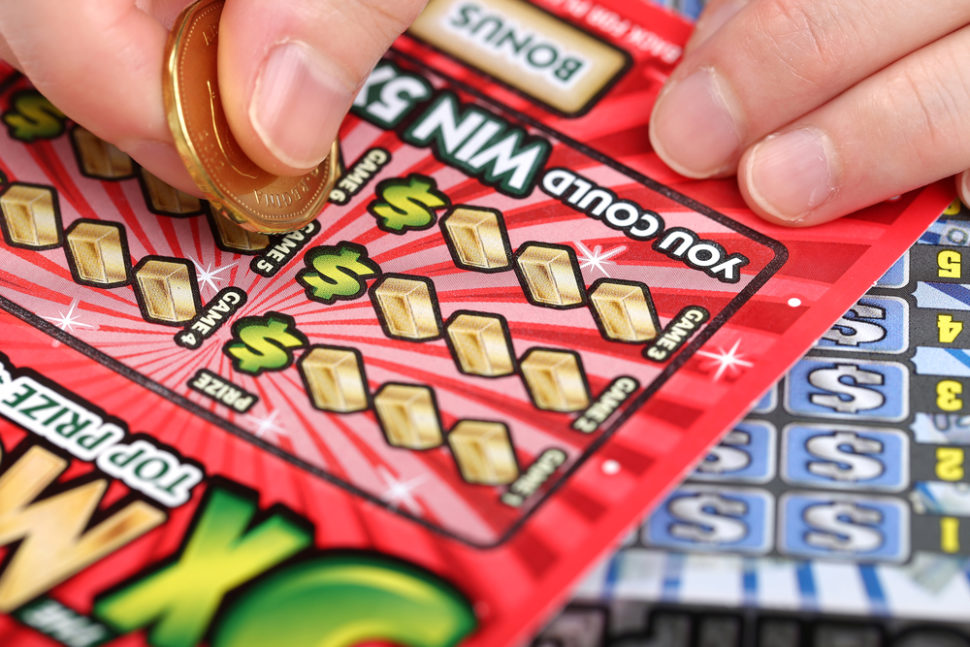Back in 1969, English mathematician, Adrian R.D. Mathias posed a theoretical problem within the field of set theory: is there a lottery ticket that always wins?
For most of the ’70s, ’80s, and ’90s, the problem remained a mystery. Several set theorists who tried to tackle the problem ultimately failed.
In 2002, an associate professor at the University of Copenhagen’s Department of Mathematics, Asger Dag Törnquist heard of the problem while completing his doctoral dissertation at UCLA. So, he decided to take it on.
In a statement to the press, Törnquist said:
“I was fascinated because it was an old problem that dealt with our understanding of infinity in mathematics. Even then, it became a dream of mine to solve the mystery, even though I had no idea of how to accomplish what had been elusive for others over decades.”
So, how did he accomplish this feat? Well, first, let’s consider the problem.
Does Ramsey Theory Prevent the Existence of a Mad Family?
Adrian Mathias’s research focused on order and structure. The English man wanted to understand how things occur spontaneously in a sufficiently sizeable mathematical stage.
Today, this area of study is called Ramsey Theory, named after the British philosopher and mathematician Frank Ramsey.
Mathias believed that there was a relationship between Ramsey Theory and MAD family. However, he was unable to prove the existence of such a link.
Think of the MAD family as a kind of lottery ticket that always wins in a specific, infinite lottery game.
“In this game, lottery tickets have an infinite number of rows of whole numbers, and each row itself has infinitely many numbers. And, a ticket may have so many rows that they simply cannot be numbered,” says Törnquist.
So, the question Mathias was asking the world was: does Ramsey Theory prevent the existence of a Mad family?
In other words, does the order and structure that we know prevents the existence of a ticket that always wins?
Solving a “Baby Version” of the Mysterious Lottery Ticket
For many years abroad, Törnquist shouldered his dream of answering Mathias’ question. In 2011, the mathematician finally started working at the University of Copenhagen’s Department of Mathematical Sciences.
That was when Törnquist and David Schrittesser, his Austrian postdoctoral researcher, decided to find a new approach to the problem.
Törnquist noted:
“In 2014, I decided to rethink the problem from scratch and found a whole new way of tackling it. Alongside the original mystery, Mathias had formulated a sort of baby-version of the mystery. Neither had been solved. I managed to solve the baby version of mystery, which I then wrote an article about.”
The article was an instant hit. Great mathematicians from various parts of the world were intrigued, and it reignited interest in the area of research.
As various researchers continued to build on Törnquist and Schrittesser’s article, more pieces of the puzzle began falling into place.
An Ever-Winning Lottery Ticket Does Not Exist
After five years of work, Törnquist and Schrittesser concluded that complete coincidence does not exist.
Törnquist concluded:
“This confirms that one cannot assemble such a type of a lottery ticket without the emergence of certain patterns and regularities in ticket numbers. As such, no lottery ticket always wins Mathias’ lottery game.”
The researchers published their paper on Adrian Mathias’ “lottery ticket” in the American scientific journal, The Proceedings of the National Academy of Sciences (PNAS).












Whoever plays the lottery and their reasons for playing it are their business, and for someone to call another person a loser just because they want to take a chance at luck is a real lousy thing to say. Too many people are so concerned with what other people do and make fun of them, I was introduced to the lottery by my good friend Philip who is a gambler, I played the lottery for 6 months and I didn’t win a dollar. I was giving up when I stumbled on a help on the internet. Someone was testifying of the goodness of a man called SOTU. Sotu is a spiritual doctor who gives out winning numbers after a spiritual encounter. I contacted him as instructed, by Email. The rest is history. I won $2M from the Powerball Lottery. Dr. Sotu is the name. Email: Greatsotuspell@saintly. com